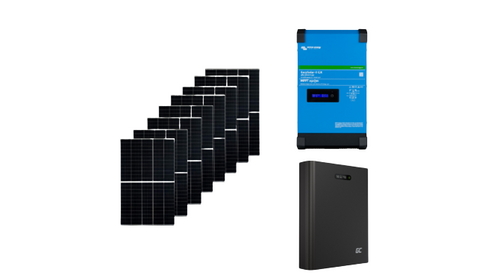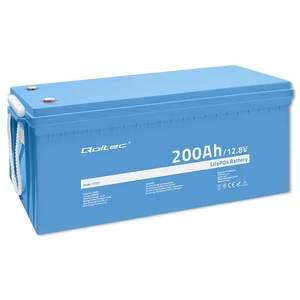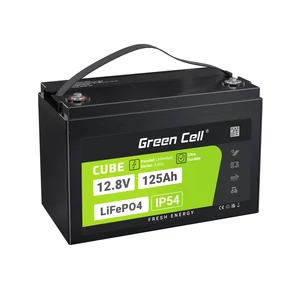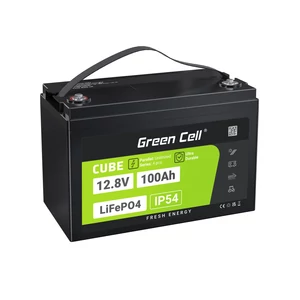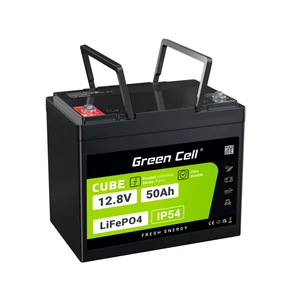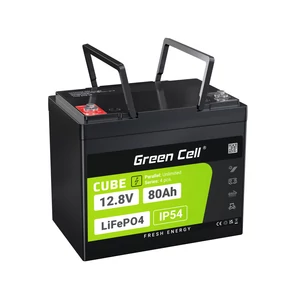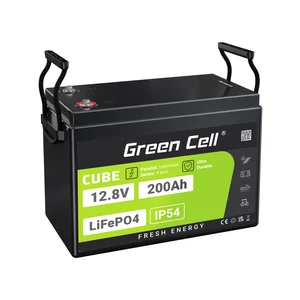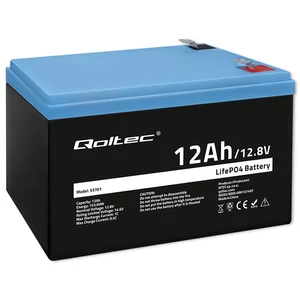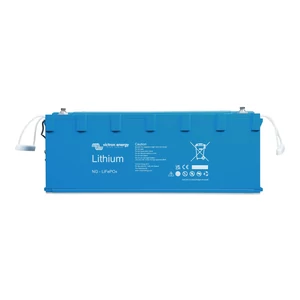LiFePO4 battery
Qoltec LiFePO4 Lithium Iron Phosphate Battery | 12.8V | 200Ah | 2560Wh | BMS
VHBW battery LiFePO4 6Ah 6.4V 38.4 Wh Lithium-iron phosphate battery for motorhomes
Green Cell CUBE LiFePO4 125Ah 12.8V 1600Wh Lithium Iron Phosphate Battery for Camper, Solar, Off-Grid System, Boat
VHBW battery LiFePO4 6Ah 12.8V 76.8 Wh Lithium-iron phosphate battery for motorhomes
Green Cell CUBE LiFePO4 50Ah 12,8V 640Wh Lithium-iron-phosphate battery for Camper, Golf cart, Wind power plant, Foodtruck
QOLTEC 24V LIFEPO4 Lithium-iron phosphate battery 25.6V | 100ah | 2560Wh | BMS
Green Cell CUBE LiFePO4 80Ah 12.8V 1024Wh Lithium-iron-phosphate battery for Camper, Cleaning Equipment, Camping
Green Cell CUBE LiFePO4 200Ah 12.8V lithium iron phosphate battery for RV, solar, off-grid system, boat
Qoltec LiFePO4 battery 12.8V | 24Ah | 307.2Wh | BMS | PV, UPS, RV, boat
Innovative LiFePO4 Batteries for Sustainable Energy
A LiFePO4 battery (also known as a lithium phosphate battery) is a type of lithium-ion battery that uses lithium iron phosphate (LiFePO4) as the cathode. It has several advantages that are making it increasingly popular in both industrial and home applications. They weigh significantly less than other maintenance-free batteries and can be charged and discharged at significantly higher currents than other types. These batteries are typically more stable and reliable, and less prone to overheating or fire hazards, especially when compared to other batteries such as those based on lithium cobalt oxide (LiCoO2).
This is due to its thermal stability and its lack of thermal runaway. The latter means that there is much less likelihood of a self-excitation reaction. This happens when the internal temperature of the battery rises to a level that causes damage or a fire hazard. While not completely immune to spontaneous self-ignition, the chemical composition of LiFePO4 batteries means that they are significantly less likely to develop one.
The crystalline structure of LiFePO4 is physically and chemically robust, which reduces the chance of battery damage or electrolyte leakage.
The lifetime of a battery is usually limited by the number of charge-discharge cycles. The cathode structure of LiFePO4 is chemically stable, which minimises degradation of the material - meaning that the properties of a material gradually deteriorate and lose their value over time, under certain conditions - during charge and discharge cycles. In other Li-ion batteries, degradation of the cathode structure results in a reduction in capacity and shortening of battery life, but in LiFePO4 this process is much slower.
In addition, the lower operating voltage of LiFePO4 batteries (nominally 3.2 V) contributes to increased battery life. This reduces the chemical stress on the materials and the damage caused by the internal electrical voltage, which provides additional stability to the battery for a long battery life.
Buy now from our LiFePO4 battery range and get a safer, more reliable and longer lasting power source!





